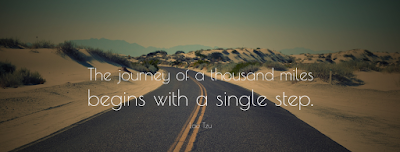In the last 20 years of the twentieth century, many diets incorporated what can only be described as a punishing mandatory exercise regime.
This often involved extensive gym work and jogging (etc.) to an extent that would today be seen as being at best unnecessary and at worst potentially detrimental to your health.
It's worth being clear that exercise is important for a number of reasons not related to losing weight. For example, a modest degree of regular exercise is highly advisable simply to help maintain your cardiovascular system in the best condition.
In terms of modern diets, exercise is seen as being part of a balanced approach to losing weight rather than a main method in itself.
If you are looking to undertake exercise as part of your diet regime, how do you go about deciding what is for you? Here are a few basic tips that might be useful.
1. If you are very seriously overweight or suffer from any existing non-trivial medical conditions, you should consult your doctor in advance. They may give you some useful guidance as to just how much exercise each day your body could take, given your overall health.
2. Select a form or forms of exercise that appeal to you rather than something you instinctively hate. For example, if you enjoy gentle swimming and brisk walking and will do those things enthusiastically, it's probably better for you than taking on something like gym work if you know you detest it.
3. Consult a diet or physical fitness professional about a gently incremental path for your exercise. If you are fundamentally unfit, don't set out from day one to take on an unrealistically demanding set of exercise objectives. Start slowly and modestly then build up over time.
4. Try to find someone to exercise with. One of the biggest problems and inhibitors to regular and successful exercise is that it can be boring if you are doing it alone.
5. Get yourself some appropriate exercise clothes. If your clothing is tight and 'make do', it's not going to help you.
6. Don't get confused over weight loss following exercise. Weighing yourself immediately after exercise can sometimes show an immediate loss of weight but that may be largely due to fluid loss which will be replaced very quickly. Remember that exercise, as part of a diet regime, takes time to have a noticeable effect.
7. Remember that exercise is meant to be fun and you should enjoy doing it. If you are not having tried it for a while, look for an alternative form (see point 2 above).
8. Don't continue with an exercise regime if it is making you feel unwell. There is a big difference to feeling healthily stretched and tired at the end of exercise and feeling ill. If you are in the latter category, once again, consult your doctor and stop the exercise until you have been cleared to continue.
9. Try to avoid being intimidated by others around you. They may all look superhumanly fit, as you go around panting and puffing but at least some of them will originally have started at the same point as you on weight loss programs. They won't be laughing or ridiculing you and many will be only too willing to offer help and advice.
10. Make sure your clothing isn't just appropriate and comfortable but is also a decent quality. For example, taking up walking or gentle jogging is great but not if you are trying to do it in shoes that aren't offering you some form of shock insulation protection. Assuming you can afford it, spend a little extra on some decent quality kit!
Above all, keep going!
Ratna Rashid is an author and business manager in Adventures in Weightloss team. Adventures in Weightloss is a medically designed, personalised weight loss program resulting in rapid and permanent weight loss. Read tips and blogs for weightloss.
Article Source: http://EzineArticles.com/?expert=Ratna_Rashid

Blogger Comment
Facebook Comment